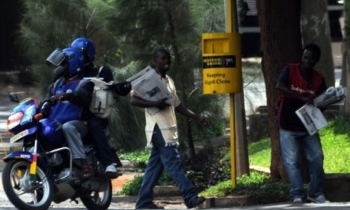Abdolreza Tajik, an Iranian journalist and member of the member of the Human Rights Defenders Centre, has been the victim of mistreatment since his arrest on June 23. Relatives say that when they visited him for the first time in Evin prison on July 14, he told them he had been victim of violence in the presence of the Tehran deputy prosecutor-general during his first night in prison, according to Reporters sans Frontières (RSF).
In the course of the conversation in the visiting room, Tajik used the Farsi term “hatke hormat,” which means “to be dishonoured.” His lawyer, Mohammad Sharif, said the term is used in legal language to refer to a sexual assault.
Conversations in the visiting room between detainees and family members are recorded by the prison authorities, who let it be known that they are doing this. The aim is both to monitor what is said and to discourage prisoners from saying too much. Tajik was therefore not free to specify what he meant by “being dishonoured.”
Mehdi Karoubi, one of the opposition candidates in the June 2009 presidential election, published an open letter in his newspaper Etemad e-Melli on July 29, 2009 in which he said young people were being raped in Iran’s prisons.
“Young people have been brutally raped and have subsequently suffered depression and seriously psychological and physical problems,” Karoubi wrote. Former detainees who have managed to flee abroad have confirmed being the victims of sexual attacks, despite the pressure put on them and their families and despite the government’s repeated denials.
Four journalists and political activists have told RSF about cases of sexual abuse in Iran’s prisons.
“The international community has been fully alerted to what is happening in Iranian prisons for the past year,” Paris-based RSF said. “It is time for Nations High Commissioner for Human Rights Navanethem Pillay to press the Iranian authorities to accept a visit from the UN special rapporteur on torture, so that he can investigate the allegations of mistreatment in Iranian prisons.”
The authorities did not reveal where they were holding Tajik for nearly a month after his arrest at his home on June 12. His lawyer has still not been able to see him or examine his case file. When a detainee is held incommunicado in this manner, it can be regarded as a case of forced disappearance and as a crime against humanity.









